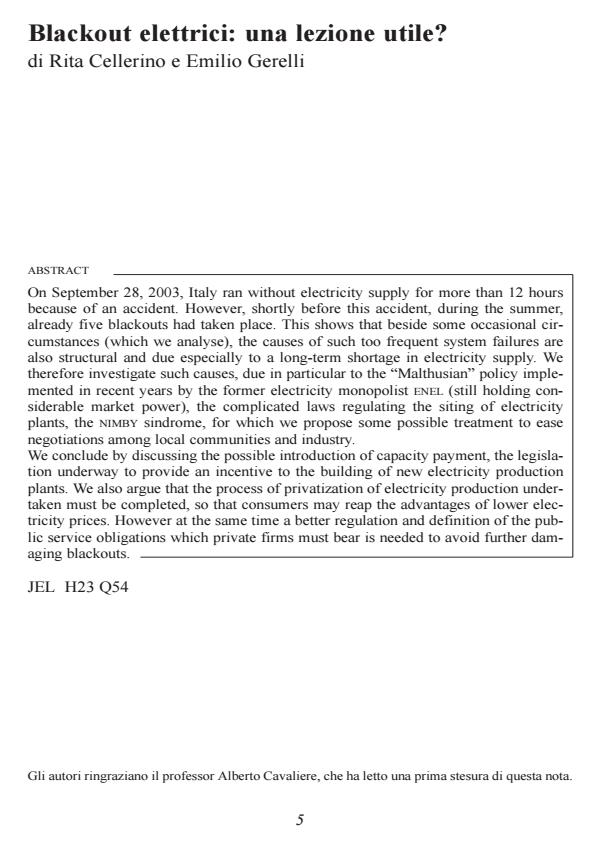Blackout elettrici: una lezione utile
Journal title ECONOMIA PUBBLICA
Author/s Rita Cellerino, Emilio Gerelli
Publishing Year 2004 Issue 2004/3
Language Italian Pages 20 P. File size 138 KB
DOI
DOI is like a bar code for intellectual property: to have more infomation
click here
Below, you can see the article first page
If you want to buy this article in PDF format, you can do it, following the instructions to buy download credits

FrancoAngeli is member of Publishers International Linking Association, Inc (PILA), a not-for-profit association which run the CrossRef service enabling links to and from online scholarly content.
On September 28, 2003, Italy ran without electricity supply for more than 12 hours because of an accident. However, shortly before this accident, during the summer, already five blackouts had taken place. This shows that beside some occasional circumstances (which we analyse), the causes of such too frequent system failures are also structural and due especially to a long-term shortage in electricity supply. We therefore investigate such causes, due in particular to the Malthusian policy implemented in recent years by the former electricity monopolist ENEL (still holding considerable market power), the complicated laws regulating the siting of electricity plants, the NIMBY sindrome, for which we propose some possible treatment to ease negotiations among local communities and industry. We conclude by discussing the possible introduction of capacity payment, the legislation underway to provide an incentive to the building of new electricity production plants. We also argue that the process of privatization of electricity production undertaken must be completed, so that consumers may reap the advantages of lower electricity prices. However at the same time a better regulation and definition of the public service obligations which private firms must bear is needed to avoid further damaging blackouts.
Rita Cellerino, Emilio Gerelli, Blackout elettrici: una lezione utile in "ECONOMIA PUBBLICA " 3/2004, pp , DOI: